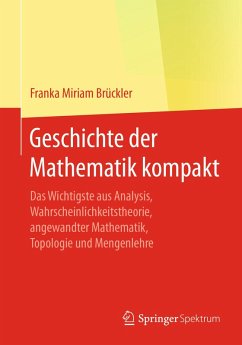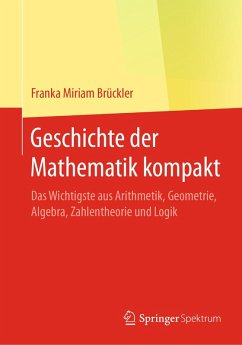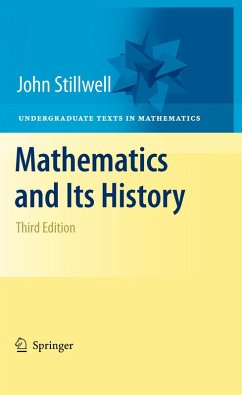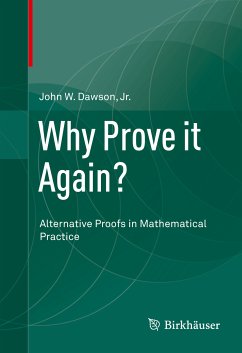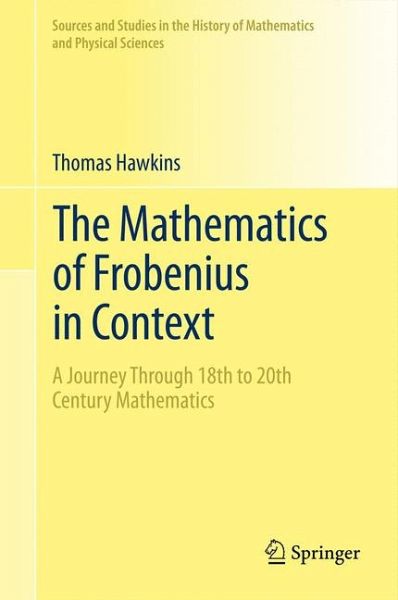
The Mathematics of Frobenius in Context (eBook, PDF)
A Journey Through 18th to 20th Century Mathematics
Versandkostenfrei!
Sofort per Download lieferbar
104,95 €
inkl. MwSt.
Weitere Ausgaben:

PAYBACK Punkte
52 °P sammeln!
Frobenius made many important contributions to mathematics in the latter part of the 19th century. Hawkins here focuses on his work in linear algebra and its relationship with the work of Burnside, Cartan, and Molien, and its extension by Schur and Brauer. He also discusses the Berlin school of mathematics and the guiding force of Weierstrass in that school, as well as the fundamental work of d'Alembert, Lagrange, and Laplace, and of Gauss, Eisenstein and Cayley that laid the groundwork for Frobenius's work in linear algebra. The book concludes with a discussion of Frobenius's contribution to ...
Frobenius made many important contributions to mathematics in the latter part of the 19th century. Hawkins here focuses on his work in linear algebra and its relationship with the work of Burnside, Cartan, and Molien, and its extension by Schur and Brauer. He also discusses the Berlin school of mathematics and the guiding force of Weierstrass in that school, as well as the fundamental work of d'Alembert, Lagrange, and Laplace, and of Gauss, Eisenstein and Cayley that laid the groundwork for Frobenius's work in linear algebra. The book concludes with a discussion of Frobenius's contribution to the theory of stochastic matrices.
Dieser Download kann aus rechtlichen Gründen nur mit Rechnungsadresse in A, B, BG, CY, CZ, D, DK, EW, E, FIN, F, GR, HR, H, IRL, I, LT, L, LR, M, NL, PL, P, R, S, SLO, SK ausgeliefert werden.




